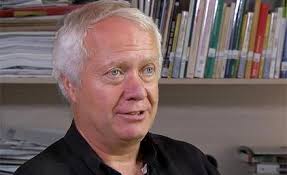Pat Mooney and Cary Fowler were nervous. The gene pools of the world's most basic food crops were diminishing at alarming rates. Because of the artificial breeding of hybrid crops, and because of U.S. agribusinesses selling hybrid seeds to Third World countries, more and more varieties of local crops were being lost, all over the world.
They knew that the U.S. used to have 7,000 varieties of apples, but all but 1,000 were extinct. Every broccoli variety offered by seed catalogs in 1900 had disappeared. In Bangladesh, approximately 62% percent of the rice varieties came from a single mother plant. In Indonesia it was 74%, and in Sri Lanka it was 75%.
So the two men—Mooney from Canada, Fowler from Norway—decided to do something about it. Along with another friend, Hope Shand, they founded the Rural Advancement Fund International and wrote a book to draw attention to the dangers of replacing a wide variety of locally adapted plants with hybrids and to promote a free, world-wide exchange of plant gene resources. They pointed out that hybrids leave many products—e.g., corn—vulnerable to disease.
As you might imagine, money and politics are inextricably bound to these issues. That's why Mooney is considered an authority on not only genetic resources and agricultural biodiversity but also global governance, corporate concentration, and intellectual property monopolies. That's also why the two men have made many enemies among the companies that seek to maintain the status quo for their own benefit.
Mooney and Fowler are fighting big business to show that high-tech monocultures are a breeding ground for disaster and are politically irresponsible, leaving humanity vulnerable to global ecological catastrophe and to widespread hunger across the globe.
Update:
In 2001, the Rural Advancement Fund International became the ETC Group; Mooney is its executive director. The organization focuses on the conservation of agricultural biodiversity, on the impact of new technologies on the rural poor, and social and environmental concerns related to biotechnology, bio-piracy, human genomics, and nanotechnology. It has compelled governments to revoke patents and has organized against a seed sterilization technology that prevents farmers from saving and replanting seeds.
Mooney participates in lectures and discussions around the world; he lobbies against geo-engineering—the deliberate altering of the earth to decrease the level of greenhouse gas emissions. And he continues to speak out against energy companies and transportation companies. "Tragically," he says, "it's a bunch of rich guys in rich countries sitting around together, saying, 'We can risk the planet. We can make the decision for everybody else. We can put our hand on the thermostat and decide for everybody else what has to be done.' . . . The guys who caused the problem of climate change in the first place, who geo-engineered us into this problem in the first place, are now saying, 'Trust us, we'll geo-engineer you out of it again.' And I just don't trust them. I just don't think that's true."
Mooney is optimistic, however. He sees change wherever he appears: "I've been amazed, in the discussions that I've been involved in . . . how aware people are of the range of the issues, how open they are to looking at other alternative solutions, how concerned they are, again, that some solution is going to be found . . .."

